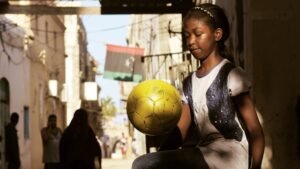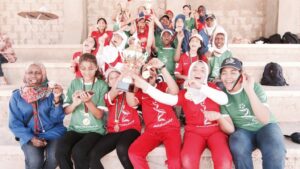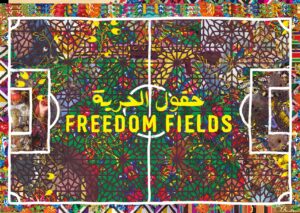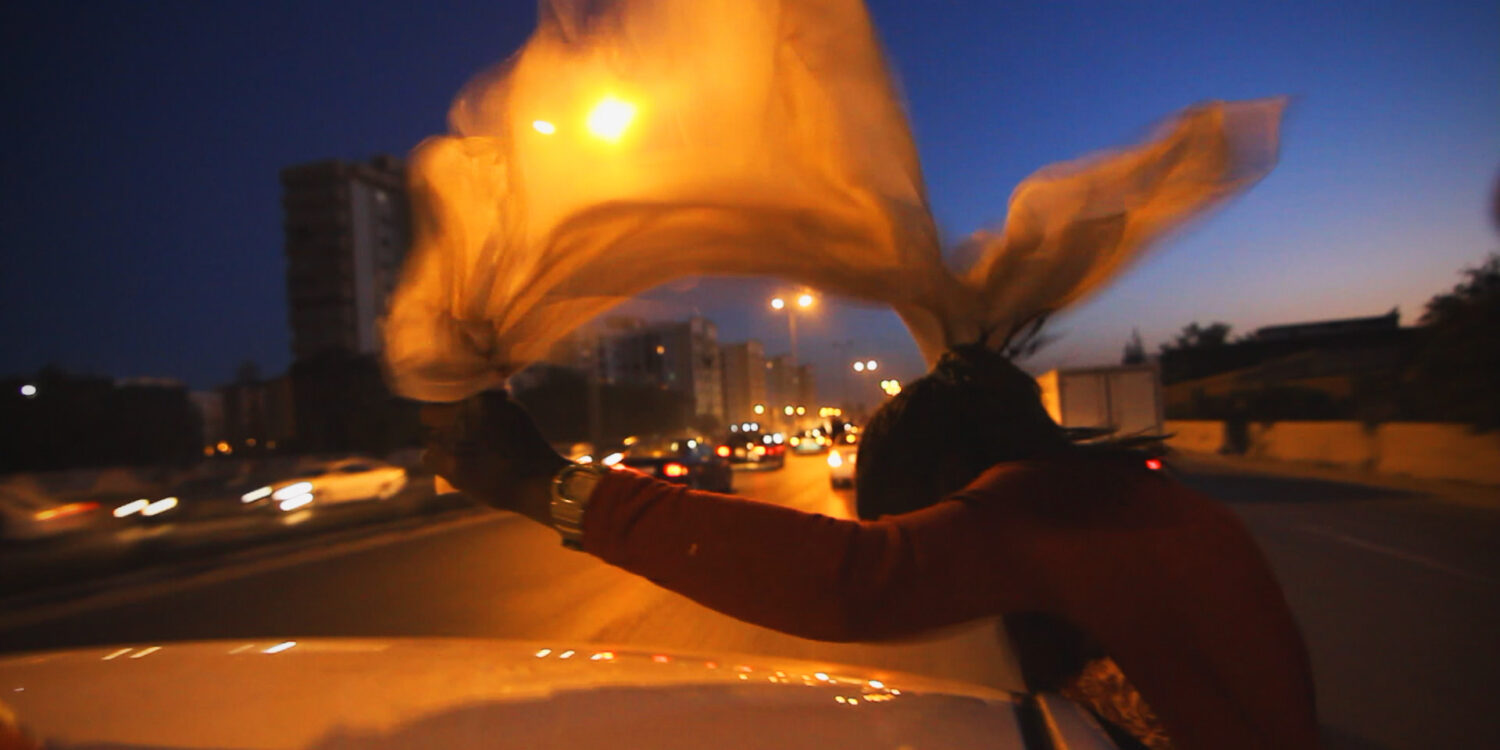On Their Terms, On Their Turf: With ‘Determination, Will & Strength’, Libyan Women Take the Stage in Freedom Fields
Review by Zoya Zia.
With thanks to the Garden Cinema for tickets to the screening.
The screening took place on 22 August 2023.
***
On Tuesday evening, a few days after the FIFA Women’s World Cup finale ended with Spain lifting the trophy for the first time, a crowd gathered at the Garden Cinema to revisit Freedom Fields (2018). This monumental documentary, filmed over several years, weaves the stories of Libyan women seeking their right to play football, among other freedoms. As Libyan-British director Naziha Arebi clarifies in an interview, this story is not just about football. It is about women’s rights, war, even coming-of-age. The diverse blend of genres is a testament to the versatility of the characters we come to know and support through 97 minutes of screentime.

Among the players on this line-up are Fadwa, Halima and Nama. Each woman comes from a different background and part of the country, showcasing their own struggles and aspirations. Over the five years of filming, their lives take shape, branch and re-branch like winding rivers. Through it all, their love of the game unites them. Before taking the pitch, they huddle up and chant ‘determination, will, strength!’ They inspire one another, collectively gathering the energy to keep fighting for what matters to them.
The film begins one year after the revolution in Libya, which was marked by violence, political instability and displacement. Before any scenes are shown, an Audre Lorde quote introduces viewers to the context of the documentary:
‘Sometimes we are blessed with being able to choose the time, and the arena, and the manner of our revolution, but more usually we must do battle where we are standing.’

For the main characters in Freedom Fields, the battlefield stretches far beyond the patch of land where they kick a ball around, extending into marketplaces and homes, schools and community centres, displacement camps and abandoned towns. At the start of the documentary, when they learn of an opportunity to represent Libya at a tournament in Germany, they are eager but face threats to their life. Extremist clerics condemn the women for playing football, saying that when they take the pitch, they bring shame upon their family. The Libyan FA ultimately decides not to send them to Germany, fracturing the team in the following years.
Images of support for Libyan men’s national football team stand in stark contrast, as the entire country backs them up. They watch fervently in cafes and on street corners, and while Halima follows along, she also recognises the double standard in how the women are treated. As the goalkeeper for the team, she is driven and passionate about the game. When she tries to go to Cameroon for coach training, she is not allowed across the border, so she returns to the books as a medical student. Fadwa lives and breathes football, but after the Libyan FA kept them from competing in Germany, she pursues a career in engineering. Nama has been displaced from her town of Tawergha since 2011, along with 40,000 others forced to leave amidst conflict. She lives in a makeshift camp with her family, keeping football close by.
The women are disconnected across Libya, their stories weaving and fraying before interlocking again. Four years after the revolution, the Libyan FA informs them that they have been asked to compete in a tournament in Lebanon. They must do so discreetly to avoid public outcry and the backlash that stopped them in their tracks before. Meanwhile, the FA does not give them access to resources including a proper pitch. In one memorable scene, when the electricity cuts out and leaves them in the dark on a practice field at night, they switch on car headlights to light the field and keep playing.

When the team finally arrives in Lebanon, their hopes are dashed and lack of preparedness is exposed. As they lose in one-sided matches, the sense of disappointment and anger pushes Fadwa to a breaking point. In speaking to the media, she is honest about their situation, describing the controlling management that prevents them from meeting with other teams and preparing adequately. When members of the Libyan FA confront her and threaten to send her back to Libya, her teammates envelop her with love and support. Inspired by the mini-revolution she led at the tournament, they say ‘we are all Fadwa.’ Ultimately, they complete the tournament together – heads held high.
Five years after the revolution, the documentary closes with glimpses of where the women went on, in terms of their relationship with football and society more generally. Fadwa forms an NGO with her friends, making their own pitch so children can play safely. Halima becomes a doctor and is excited to get married. Nama still awaits her return to Tawergha, signs that conflict is still ongoing. Although they pursued different interests, their fight on and beyond the pitch demonstrates the importance of solidarity. Their struggles are tied, their freedom linked.
Freedom Fields is a timely rewatch. Fadwa’s determination to speak out against the Libyan FA and inspire others reflects on that of the Spanish players who sat out of the FIFA World Cup this year. In opposition of the Spanish FA and their mistreatment, they put everything on the line and committed to their values. Fadwa, Halima, Nama and their former teammates continue to do the same and are now ‘accidental activists,’ trailblazing in their own ways, according to Arebi. ‘Maybe they can take the national team from us,’ Fadwa says boldly in an interview. ‘But the game belongs to us.’

